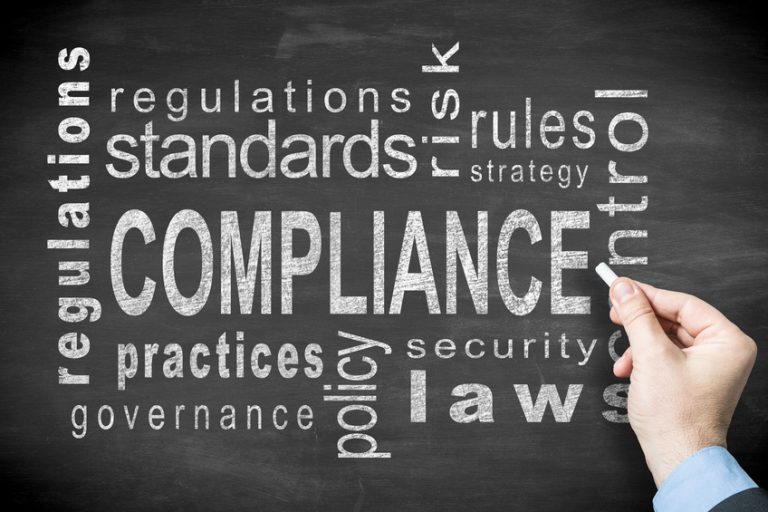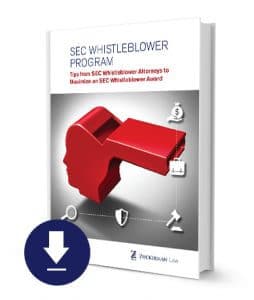Many key compliance personnel, including internal auditors, external auditors, officers, and directors may incorrectly assume that they are not eligible for awards under the SEC Whistleblower Program. In certain circumstances, however, the SEC allows these employees to report violations and become eligible for awards. In doing so, the SEC recognizes that key compliance personnel often are in the best position to recognize and expose fraud.
When Can Key Compliance Personnel Report to the SEC?
Generally, individuals who are integral to a company’s compliance are not eligible for awards, unless an exception applies. These individuals include employees whose principal duties involve compliance or internal-audit responsibilities, employees of public accounting firms, and even the officers, directors, trustees, or partners of the relevant entity.
The exceptions to this rule, found in Section 21F-4 of the Securities Exchange Act, allow these individuals to report to the SEC and receive awards under the program if:
- they reasonably believe the disclosure is necessary to prevent conduct that is likely to cause “substantial injury” to the financial interest or property of the entity or investors;
- they reasonably believe the entity is engaging in “conduct that will impede an investigation of the misconduct”; or
- at least 120 days have passed either since they properly disclosed the information internally, or since they obtained the information under circumstances indicating that the entity’s officers already knew of the information.
Notably, the 120-day exception does not apply to external auditors who obtained the information during the audit of an issuer. Instead, external auditors can immediately report to the SEC after they inform a superior in their accounting firm about improper or illegal client activity and the accounting firm fails to promptly report the securities law violation to the SEC. The first two exceptions also apply to external auditors when the violation is “material.”
Information Necessary to Prevent “Substantial Injury” to Financial Interest
In April, 2015, the SEC issued an award of more than $1 million to a compliance professional who “had a reasonable basis to believe that disclosure to the SEC was necessary to prevent imminent misconduct from causing substantial financial harm to the company or investors.” The SEC has not, however, provided detailed guidance on what type of conduct is “likely” to cause “substantial financial harm.” This ambiguity may work in whistleblowers’ favor, as the SEC has used its discretion to issue awards liberally.
In a recent enforcement action, the SEC awarded more than $5.5 million to a whistleblower who failed to meet the requirements for an award. Specifically, the whistleblower did not provide his or her disclosures “in writing,” as the Whistleblower Program requires. The SEC cited “highly unusual circumstances” in deciding to waive the “in writing” requirement for the whistleblower, who had provided information in a manner “expressly requested” by SEC enforcement staff.
Information About “Conduct that Will Impede an Investigation of the Misconduct”
Key compliance personnel can also report to the SEC if their information reveals conduct by the entity that will impede an investigation of the misconduct. While the SEC has not yet issued an award under this exception, the rule appears to be straightforward: if one has evidence of tampering with an internal investigation, then he or she is permitted to report to the SEC immediately. This improper conduct may include destroying documents, influencing witness or concealing material information.
120-Day Exception
The final, and most concrete, exception applies where at least 120 days have passed since the compliance personnel reported the information to their supervisor or to another person in the organization who is responsible for remedying the violation (i.e., audit committee, chief legal officer, chief compliance officer, or their equivalents). Alternatively, the individual may report the information at least 120 days after receiving the information, if it was received under circumstances indicating that any of the above-mentioned parties was already aware of it.
Importantly, any whistleblower who chooses this route should document the date of his or her disclosure in, for example, an email. Prior to receiving an award, all whistleblowers must prove their eligibility. Documentation that proves they waited 120 days may be the difference between a multi-million-dollar award or nothing.
For more information about whistleblower rewards and bounties, contact the SEC whistleblower lawyers at Zuckerman Law at 202-262-8959.
To learn more about the SEC Whistleblower Program, download Zuckerman Law’s eBook: SEC Whistleblower Program: Tips from SEC Whistleblower Attorneys to Maximize an SEC Whistleblower Award:
whistleblower_lawyers_012017_infographic








